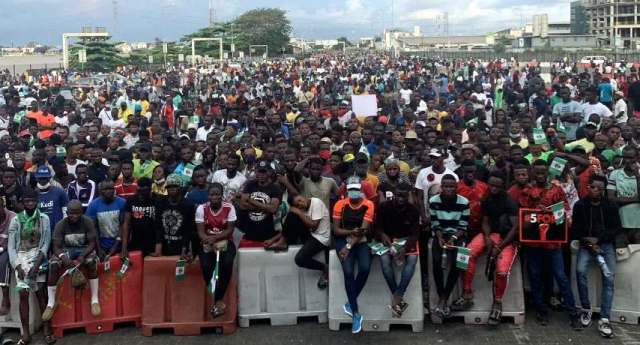Sixteen #EndSARS promoters have approached the Federal High Court in Abuja to seek an order reversing the earlier one authorising the freezing of their bank accounts by the Central Bank of Nigeria (CBN).
Recall that the CBN froze the accounts of 20 #EndSARS promoters on October 20.
The apex bank later obtained a court order to do so after accusing defendants of suspected terror financing.
However, 16 of the defendants approached the court Thursday through their counsel, Femi Falana SAN to seek an order to unfreeze the accounts.
Read Also: Buhari Assents To Banks And Other Financial Institutions Act 2020
The Herald can report that the plaintiffs are Bolatito ‘Rinu’ Oduala, who is a member of the Lagos State Judicial Panel of Inquiry on SARS and Lekki Toll Gate Incident; Chima Ibebunjoh; Mary Kpengwa and Saadat Bibi.
Others are Bassey Israel, Wisdom Obi, Nicholas Osazele, Ebere Idibie, Akintomide Yusuf and Uhuo Promise.
The other plaintiffs are Mosopefoluwa Odeseye, Adegoke Pamilerin, Umoh Ekanem, Babatunde Segun, Mary Oshifowora and Idunnu Williams.
Read Also: Fuel price hike: Nigerians furious at Buhari’s govt
The #EndSARS promoters argued that the freezing of their account was an illegality.
They further argued that the CBN under Governor Godwin Emefiele froze the accounts before approaching the court for a freezing order.
The plaintiffs further argued that by ordering the freezing of their accounts for 90 days, the court violated their right to fair hearing guaranteed under Section 36 of the 1999 Constitution and Article 7 of the African Charter on Human and Peoples’ Rights (Ratification and Enforcement) Act, Laws of the Federation, 2004.
They also contended that the court’s order freezing their accounts for 90 days violated Order 26 Rules 5, 10 and 11(1) and (2) of the Federal High Court Civil Procedure Rules, 2019, which prescribes a maximum of 14 days for the validity of an ex parte order.
The #EndSARS promoters said that by tagging them terror financiers, the CBN erred as it was not one of the investigating nor prosecuting agencies recognised under the Terrorism Prevention Act, 2011 and the Terrorism Prevention (Amendment) Act, 2013.

